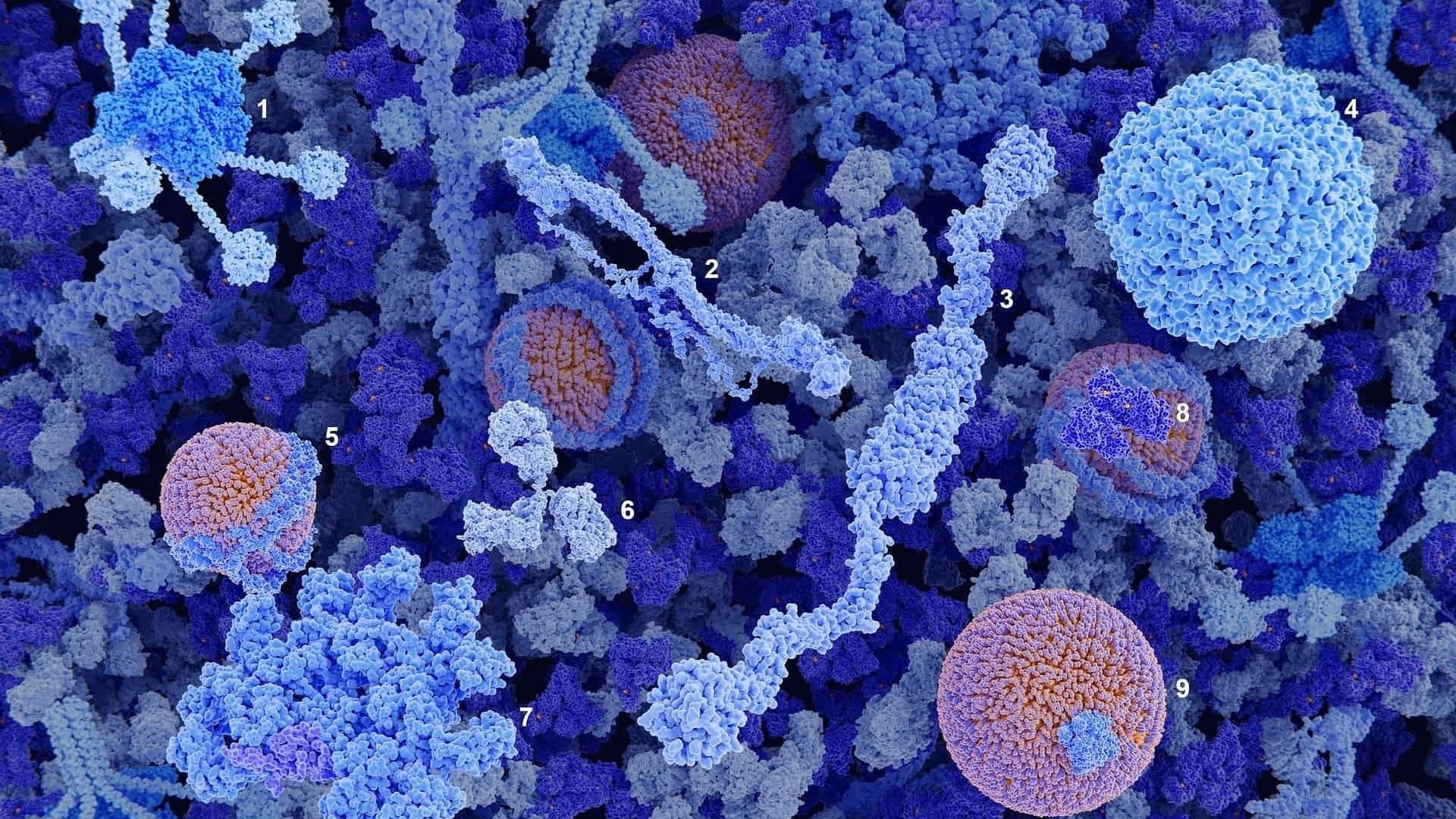Blood-Based Biomarkers: Leading the Evolution in Lung Cancer Early Detection
Microscopic visualization of biomarker molecules.
Recent findings from Harvard Medical School and Massachusetts General Hospital have revealed crucial insights into lung cancer detection, validating the urgent need for innovative diagnostic approaches (Powell, 2024). Their research in the Journal of Clinical Oncology highlights significant gaps in current detection methods—gaps that blood-based biomarker technology is uniquely positioned to address.
Understanding the Challenge
The statistics are compelling. According to the American Cancer Society, lung cancer remains the leading cause of cancer death in America, with an estimated 125,070 deaths projected for 2024 and an overall five-year survival rate of 25% (ACS, 2024). However, when lung cancer is detected at an early stage, people’s five-year survival rate is about ten times higher compared to late-stage lung cancer. Notably, the National Cancer Institute reports that over 80% of high-risk individuals are unaware of their detection options (JAMA, 2024).
Beyond Traditional Methods
Dr. Chi-Fu Jeffrey Yang of Harvard Medical School has demonstrated that traditional risk assessment methods, based on pack-year calculations, present significant limitations (Powell, 2024), as do current lung cancer detection methods. The World Health Organization's latest cancer report further emphasizes the critical need to detect cancer using novel methods that complement existing protocols (WHO, 2024).
Building on an Innovation Foundation
At Cizzle Bio, we believe in bridging the gap between cutting-edge research and real-world application. The Harvard research confirms what we've long understood: traditional detection methods alone aren't enough. While CT scans are still valuable, their nearly 90% false-positive rate highlights the need for complementary diagnostics that enhance accuracy and reduce unnecessary procedures.
Our pioneering work with the CIZ1B biomarker significantly advances lung cancer detection. This innovative approach specifically addresses current challenges in the field by offering:
High Accuracy: The CIZ1B test demonstrates remarkable specificity, markedly reducing false positives and providing healthcare providers with reliable data for informed decision-making.
Non-Invasive Detection: A simple blood draw replaces costly and complex imaging procedures, making regular testing more feasible and patient-friendly.
Clear Affordability and Accessibility: Our technology can be broadly implemented across healthcare systems, making early detection more attainable for diverse populations.
Objective Assessment: Unlike subjective risk calculations, biomarker assays provide clear molecular-level evidence of disease.
A Shared Goal: Detect Early, Save Lives
The Harvard Medical School and Massachusetts General Hospital research underscores a crucial truth: fighting lung cancer requires creativity, collaboration, and commitment. Their groundbreaking work shows that current approaches may miss critical opportunities for early detection because of the cost, inaccuracy, and inconvenience of such testing, particularly among underserved populations (Powell, 2024).
Cizzle Bio recognizes the tremendous contributions of institutions like MGH in advancing the science of lung cancer detection. Their work emphasizes the urgent need for complementary diagnostic approaches—a need we are addressing through our innovative CIZ1B biomarker technology.
Looking Forward
The message is clear: effective lung cancer detection requires innovative, accessible diagnostic solutions. As detection criteria evolve, our CIZ1B biomarker technology stands ready to join the fight, supporting the fundamental goal of identifying lung cancer early, when treatment most effectively saves lives.
Together, let’s transform lung cancer detection.
Learn More About the Science Behind CIZ1B | Read the Original Study

